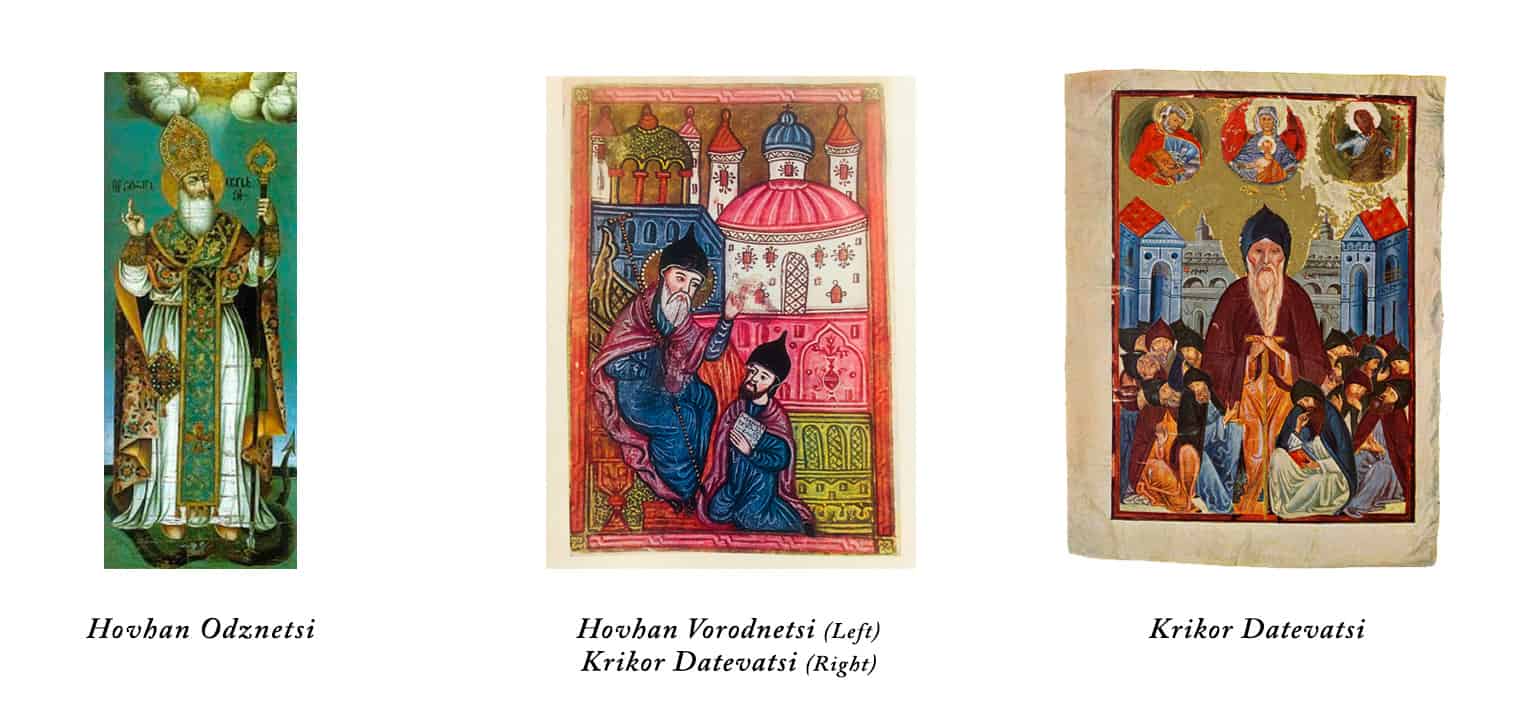This Saturday, March 2, the Armenian Church commemorates the following four saints:
St. John
Patriarch of Jerusalem, succeeded St. Cyril as Patriarch of Jerusalem (386-417). He grew up with the monks at the monastery of Nitria (Egypt) where he learned about Christianity. He was noted for his keen intellect and is said to have delivered inspiring and eloquent sermons.
Hovhan Odznetsi
(St. John of Otzoon) was catholicos from 717 to 728, which was a period when Armenia was under Arab rule. He defended Armenians from forced conversion and was successful in securing the right of worship for Armenian Christians. He was also successful in securing tax-exempt status for the church. He was highly admired and respected.
Hovhan Vorodnetsi
(St. John of Orotni) was born in 1317. Following his ordination, he served at the monasteries of Klatzor and Datev. He dedicated most of his efforts toward the preservation of the orthodox faith, and against the attempt to merge the Armenian Church with the Latin Church. He wrote commentaries on the Gospel of John and the epistles of St. Paul.
Krikor Datevatzi
(St. Gregory of Datev), born in 1346 in the province of Vayotz Tzor, is perhaps the best known of the four. He was a student of John of Orotni and a great defender of the character of the Armenian Church. He was a brilliant scholar; he knew Latin fluently and had studied the Greek philosophers extensively. He is regarded to be the greatest teacher of the Armenian Church. His most famous work is the Book of Questions (Kirk Hartsmants), which examines questions of faith. He is also credited with setting a high standard for preaching. He is often referred to as “the second Gregory the Illuminator.” Datevatzi, who died in 1409, had the distinction of being the last person to be canonized in the Armenian Church until the Martyrs of April were canonized on the 100th anniversary of the Armenian Genocide.

